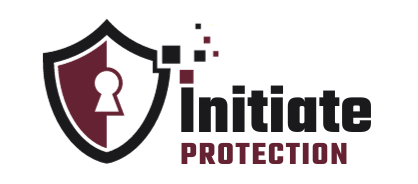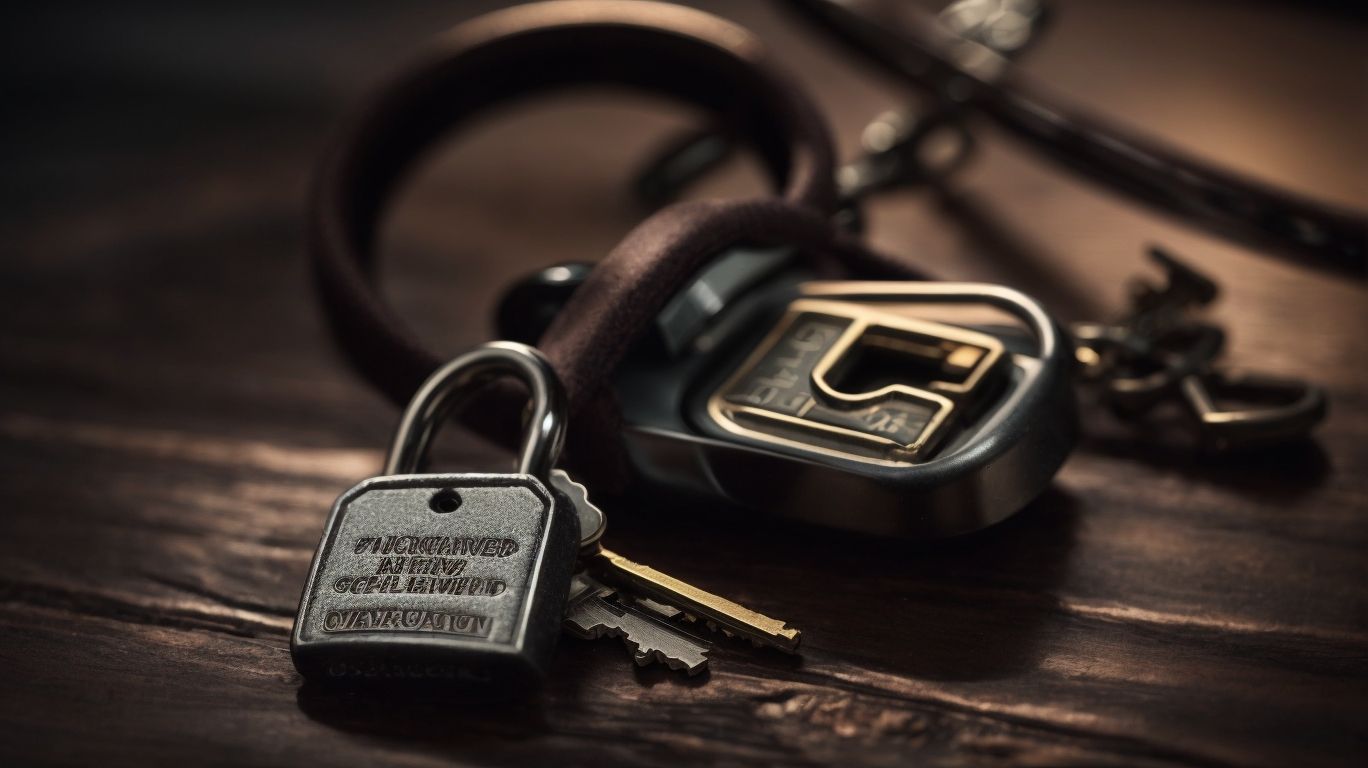Welcome to the world of technology where information flows freely and conveniently. However, with this convenience comes the risk of sensitive data being compromised while traveling. As we rely more on our electronic devices, it is crucial to protect our data while on the go. Are you worried about your privacy and security while traveling? Let us guide you through the best ways to keep your data safe and secure.
Why Is Data Security Important While Traveling?
When traveling, it is crucial to prioritize data security in order to protect sensitive information from unauthorized access or theft. Here are some reasons why data security is important while traveling:
- Privacy: It is important to prevent unauthorized access to personal and financial data stored on devices.
- Identity theft: By safeguarding personal information such as social security numbers and bank account details, travelers can minimize the risk of identity theft.
- Financial security: Ensuring that credit card information and online banking transactions are secure can prevent fraudulent activities.
- Confidentiality: Business data, intellectual property, and trade secrets should be protected from competitors, hackers, or cybercriminals.
By taking measures such as using strong passwords, encrypting data, and using secure networks, travelers can mitigate the risks of data breaches and maintain peace of mind.
What Are the Potential Risks of Traveling with Sensitive Data?
As technology continues to advance, the ability to work and travel with sensitive data has become increasingly convenient. However, with this convenience comes potential risks and vulnerabilities. In this section, we will discuss the potential risks of traveling with sensitive data and how to safeguard against them. From the loss or theft of devices to hacking and cyber attacks, as well as physical surveillance and eavesdropping, we will explore the various ways in which your data could be compromised while on the go.
1. Loss or Theft of Devices
When traveling, it is important to consider the potential risk of losing or having your devices stolen, which can compromise your data security. To safeguard your information, follow these steps:
- Always keep your devices with you, avoiding leaving them unattended.
- Use a virtual private network (VPN) to encrypt your internet connection and protect your data from potential hackers.
- Utilize a secure cloud storage service to store your sensitive files and access them securely from any device.
- Be aware of your surroundings and avoid any suspicious individuals or situations that may put your devices at risk.
- Regularly update your software and operating system to ensure you have the latest security patches and protections against potential vulnerabilities.
2. Hacking and Cyber Attacks
Protecting Yourself from Hacking and Cyber Attacks
When traveling, it’s vital to be aware of the potential risks of hacking and cyber attacks on your sensitive data. To safeguard yourself, follow these steps:
- Secure your devices: Set strong passwords and use encryption to protect your data from hackers.
- Avoid public Wi-Fi: Hackers can intercept your data on unsecured networks. Use a virtual private network (VPN) for secure browsing.
- Use secure cloud storage: Keep your sensitive data safe by storing it in encrypted cloud storage services.
- Be cautious of physical security risks: Keep an eye on your devices and be mindful of shoulder surfing or unauthorized access.
- Update your software: Regularly update your devices and operating systems to patch any security vulnerabilities.
3. Physical Surveillance and Eavesdropping
Physical surveillance and eavesdropping pose significant risks to data security while traveling. To protect yourself, follow these steps:
- Stay vigilant: Be aware of your surroundings and look out for suspicious individuals or activities.
- Avoid public conversations: Refrain from discussing sensitive information in public places where others may eavesdrop.
- Use secure communication methods: Utilize encrypted messaging apps or make phone calls using secure lines.
- Secure your devices: Use privacy screens on your laptops and smartphones to prevent people from viewing your screen.
- Protect your conversations: Consider using white noise machines or sound masking devices to prevent eavesdropping.
During a business trip, a traveler noticed a person listening in on their private conversation in a hotel lobby. The traveler quickly moved to a more secure location and implemented additional security measures to protect their sensitive information. This incident highlighted the importance of being cautious of physical surveillance and the need for proactive measures to safeguard data while traveling.
How to Prepare for Secure Traveling?
When traveling, it’s important to not only protect your physical safety but also your digital security. In this section, we will discuss the necessary steps to prepare for secure traveling. We’ll cover the importance of backing up your data, using strong passwords and encryption, and enabling two-factor authentication. Additionally, we’ll explore the risks associated with using public Wi-Fi and how to be cautious of physical security threats while on the go. By implementing these measures, you can ensure that your data remains safe and secure while traveling.
1. Back Up Your Data
Backing up your data is crucial while traveling to ensure the safety and accessibility of your information. Here are some steps to follow:
- Make it a habit to regularly back up your important files and documents.
- Utilize cloud storage services such as Dropbox or Google Drive to securely store your data.
- Consider having an external hard drive or USB flash drive as an additional backup.
- Encrypt your backups to safeguard sensitive information from unauthorized access.
- Store your backups separately from your devices to prevent loss in case of theft or damage.
Remember, accidents and theft can happen anytime, so it’s essential to have multiple copies of your data to avoid any potential loss. Stay proactive and protect your valuable information.
2. Use Strong Passwords and Encryption
Using strong passwords and encryption is crucial for ensuring data security while traveling. Here are some steps to follow:
- Create unique passwords for each device and account.
- Use a combination of uppercase and lowercase letters, numbers, and special characters.
- Avoid using easily guessable information like birthdays or names.
- Enable two-factor authentication whenever possible.
- Encrypt sensitive files and folders using reliable encryption software.
By following these steps, specifically using strong passwords and encryption, you can significantly reduce the risk of unauthorized access to your data while traveling.
3. Enable Two-Factor Authentication
Enabling two-factor authentication is crucial for enhancing data security while traveling. Follow these steps to enable it:
- Go to the settings or security section of the respective platform or app.
- Select the option for Two-Factor Authentication.
- Choose the preferred method, such as receiving a verification code via SMS or using an authentication app.
- Follow the instructions to set up and verify your second factor.
- Once enabled, you’ll need to provide the second factor, typically a verification code, in addition to your password when logging in.
Pro-tip: Use a password manager to securely store your login information and generate strong, unique passwords for each account.
4. Avoid Using Public Wi-Fi
When traveling, it’s crucial to avoid using public Wi-Fi to ensure the security of your data. Public Wi-Fi networks are often unencrypted, making them vulnerable to hackers and cyber attacks.
- Use your mobile data plan or a personal hotspot instead of connecting to public Wi-Fi.
- If you must use public Wi-Fi, consider using a virtual private network (VPN) to encrypt your connection.
- Avoid accessing sensitive information like online banking or email accounts while connected to public Wi-Fi.
- Disable automatic Wi-Fi connections on your devices to avoid unintentionally connecting to insecure networks.
Fact: According to a survey, sixty percent of people connect to public Wi-Fi networks while traveling, putting their personal and sensitive data at risk.
5. Be Cautious of Physical Security Risks
While traveling, it is important to be cautious of physical security risks to protect your data. Here are steps to minimize these risks:
- Keep devices with you at all times to prevent theft or unauthorized access.
- Avoid leaving devices unattended or in visible areas.
- Use a physical lock or secure bag for added protection.
- Be mindful of your surroundings and avoid using devices in crowded or unsecured areas.
- Shred or securely dispose of documents containing sensitive information.
What Are the Best Practices for Data Security While Traveling?
When traveling, it’s important to not only protect yourself physically but also protect your data. In this section, we will discuss the best practices for data security while on the go. These include keeping your devices with you at all times, using a virtual private network (VPN), utilizing a secure cloud storage service, being aware of your surroundings, and regularly updating your software and operating system. By following these guidelines, you can ensure the safety and security of your personal and sensitive data while traveling.
1. Keep Your Devices with You at All Times
When traveling, it is crucial to keep your devices with you at all times to ensure data security. Here are some steps to follow:
- Carry your devices with you in a secure bag or backpack to minimize the risk of theft.
- Avoid leaving your devices unattended in public places, such as airports or cafes.
- Utilize hotel safes or secure lockers to store your devices when they are not in use.
- Make sure to keep your devices within sight or reach, especially in crowded areas.
- Consider using anti-theft devices or tracking apps to protect your devices from potential theft.
By following these steps, you can significantly reduce the chances of your data being compromised while traveling.
2. Use a Virtual Private Network
Using a Virtual Private Network (VPN) is crucial for ensuring data security while traveling. Here are steps to follow:
- Research and choose a reputable VPN provider.
- Install the VPN app on your devices.
- Connect to a VPN server before accessing the internet.
- Ensure your VPN is using strong encryption protocols.
- Avoid using public Wi-Fi networks without a VPN.
By using a VPN, your internet traffic is encrypted and routed through a secure server, protecting your data from potential hackers and surveillance. Remember to follow these 2. Use a Virtual Private Network (VPN) to safeguard your sensitive information while traveling.
3. Use a Secure Cloud Storage Service
Using a secure cloud storage service is an essential step in protecting your data while traveling. Here are some steps to follow:
- Select a reputable cloud storage provider that prioritizes data security.
- Encrypt your files before uploading them to the cloud to add an extra layer of protection.
- Create strong and unique passwords for your cloud storage account.
- Enable two-factor authentication to prevent unauthorized access.
- Regularly update your cloud storage service and any associated apps to ensure you have the latest security patches.
True story: While on a business trip, Sarah lost her laptop containing sensitive client information. Thanks to using a secure cloud storage service, she was able to remotely wipe the data from the device and access her files from another device without compromising confidentiality.
4. Be Aware of Your Surroundings
When it comes to data security while traveling, it is important to always be aware of your surroundings to protect your sensitive information. Here are some steps to follow:
- Keep an eye on people around you and be cautious of anyone who seems suspicious.
- Avoid displaying your devices or sensitive information in public areas.
- Ensure that no one is looking over your shoulder when entering passwords or accessing confidential data.
- Be cautious of public Wi-Fi networks and avoid using them for sensitive tasks.
- Secure your belongings and keep them within your sight at all times.
Additionally, it is highly recommended to use privacy screens on your devices and to be mindful of where you store your physical documents. By staying vigilant and proactive, you can greatly reduce the risk of data breaches while traveling.
5. Update Your Software and Operating System
Keeping your software and operating system up to date is crucial for data security while traveling. Here are important steps to follow:
- Enable automatic updates to ensure you have the latest security patches.
- Regularly check for software updates on all your devices.
- Install updates promptly, as they often include important security fixes.
- Update your operating system to benefit from enhanced security features.
- Consider using a mobile device management (MDM) solution to manage and update your devices remotely.
Fact: According to a study by Verizon, 99% of data breaches could have been prevented by applying available security patches and updates.
5. Update Your Software and Operating System
What Should You Do If Your Data Is Compromised While Traveling?
If you find yourself in a situation where your data is compromised while traveling, it is important to take immediate action to minimize any potential damage and protect your information. Here are some steps you can take in such a scenario:
- Notify your bank and credit card companies as soon as possible to report any unauthorized transactions.
- Change your passwords for all your online accounts, especially those containing financial or personal information.
- Enable two-factor authentication on your accounts for an extra layer of security.
- Scan your devices for malware and viruses, and consider wiping them clean if necessary.
- Keep a close eye on your accounts and credit reports to monitor for any suspicious activity.
Take for example John, who while traveling abroad, discovered that his credit card had been compromised. He immediately took action by contacting his bank, canceling the card, and resolving the issue before any significant damage could occur. Thanks to his quick response, he was able to avoid potential financial loss and stress during his trip.
Frequently Asked Questions
What are some common risks to my data when traveling?
When traveling, there are several risks that can compromise the security of your data, including cyber attacks, physical theft, and loss of devices. These risks can result in unauthorized access to your personal information, financial data, and sensitive documents.
How can I protect my data while traveling?
There are several steps you can take to protect your data while traveling. These include using strong and unique passwords, enabling two-factor authentication, avoiding public Wi-Fi networks, encrypting your devices, and backing up your data regularly.
Is it safe to use public Wi-Fi while traveling?
Using public Wi-Fi networks can be risky as they are often unsecured and can expose your data to hackers. It is best to avoid using public Wi-Fi for sensitive activities like online banking or accessing personal accounts. If you must use public Wi-Fi, make sure to use a virtual private network (VPN) to secure your connection.
How can I keep my devices from being physically stolen?
To prevent physical theft of your devices, always keep them with you or in a secure location. Avoid leaving them unattended, especially in public places. You can also use a tracking app or enable the “Find My Device” feature on your devices to track them in case they are lost or stolen.
What should I do if my data is compromised while traveling?
If you suspect that your data has been compromised while traveling, immediately disconnect from any Wi-Fi networks and change your passwords for all your accounts. Contact your bank and credit card companies to report any suspicious activity. You can also consider freezing your credit to prevent identity theft.
Are there any additional measures I can take to protect my data while traveling?
Yes, you can also enable remote wiping on your devices so that you can remotely erase all data in case your device is lost or stolen. You can also use secure cloud storage to store important documents and regularly update your devices and software to protect against known vulnerabilities.






